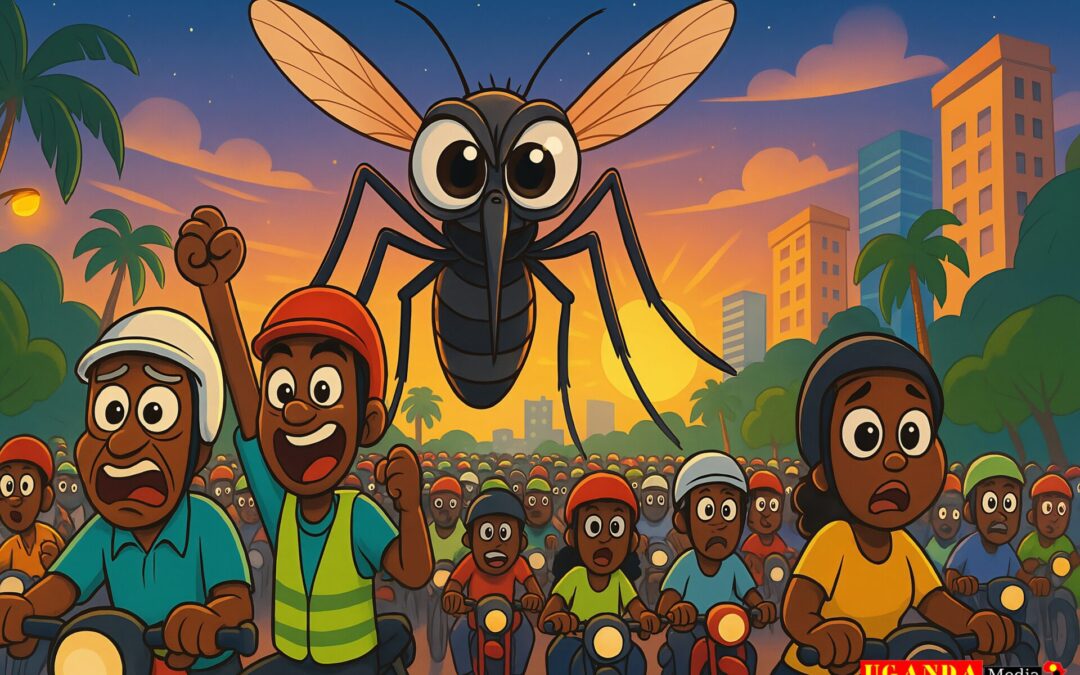Uganda’s Notorious Regime Faces Backlash Over Chinese Anti-Mosquito Gadgets and DDT Use
Under the blistering Ugandan sun, where the air shimmered with both heat and tension, an unlikely army marched through Kampala’s chaotic streets. It was a motley crew—a coalition of Makerere University students armed not with weapons but with wit, banners, and peculiar Chinese litho anti-mosquito gadgets that hummed ominously as they swayed on their makeshift placards. The crowd brimmed with contradictions: cruel determination mingled with captivating absurdity; sinister slogans clashed against humorous chants; corruption loomed large, yet adventure sparkled like sunlight on sweat-soaked foreheads.
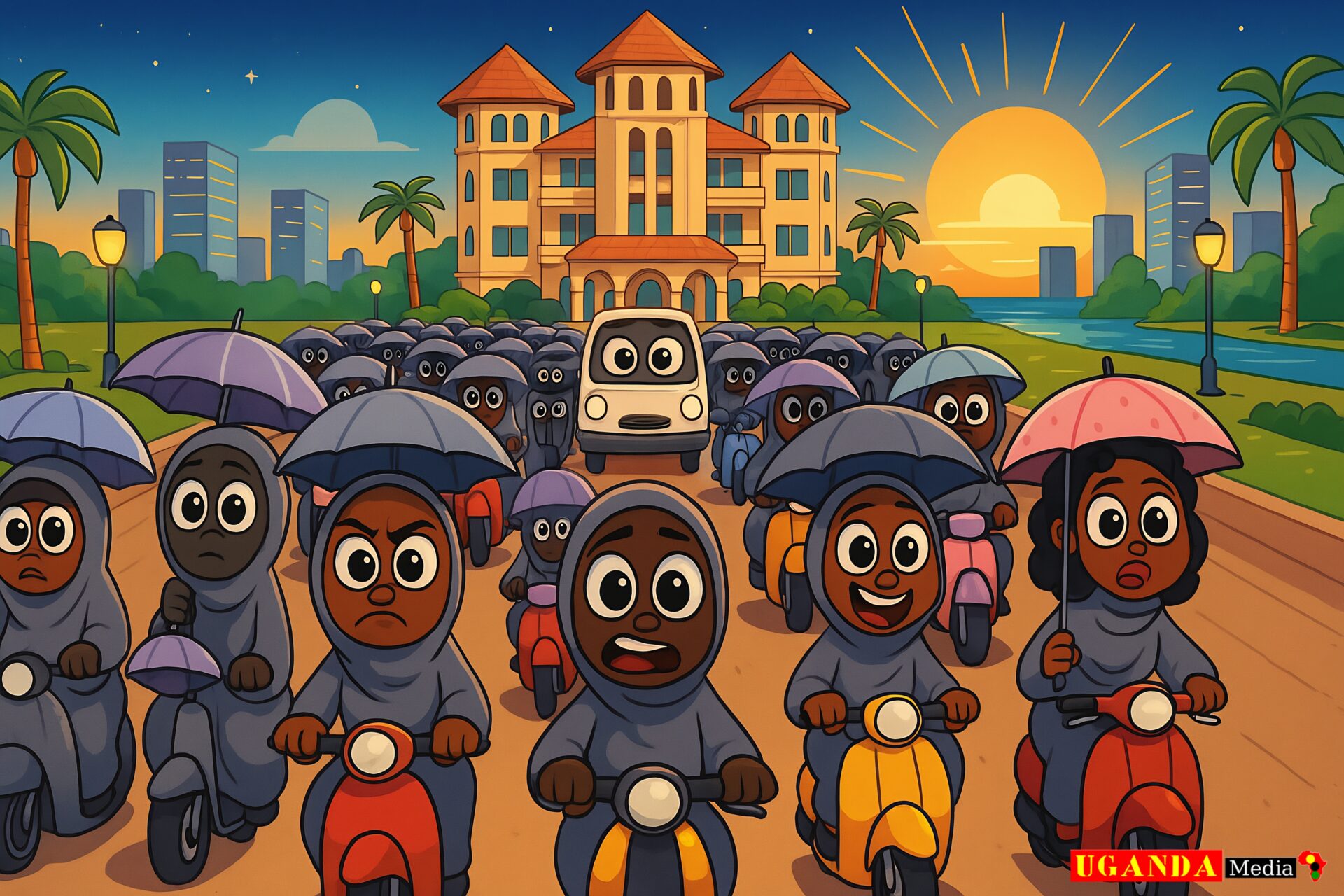
At the helm of this strange procession were bodaboda riders—motorbike men usually ferrying passengers or goods—now transformed into flag-bearers of dissent. Their bikes roared defiantly as they led the charge down Kampala Road, weaving between potholes and honking horns. Banners fluttered behind them like capes of modern-day superheroes: “DDT Kills More Than Mosquitoes!” read one. Another declared, “Brigadier Muhwezi Must Go!” Each slogan dripped with drama, satire, and a hint of melancholy.
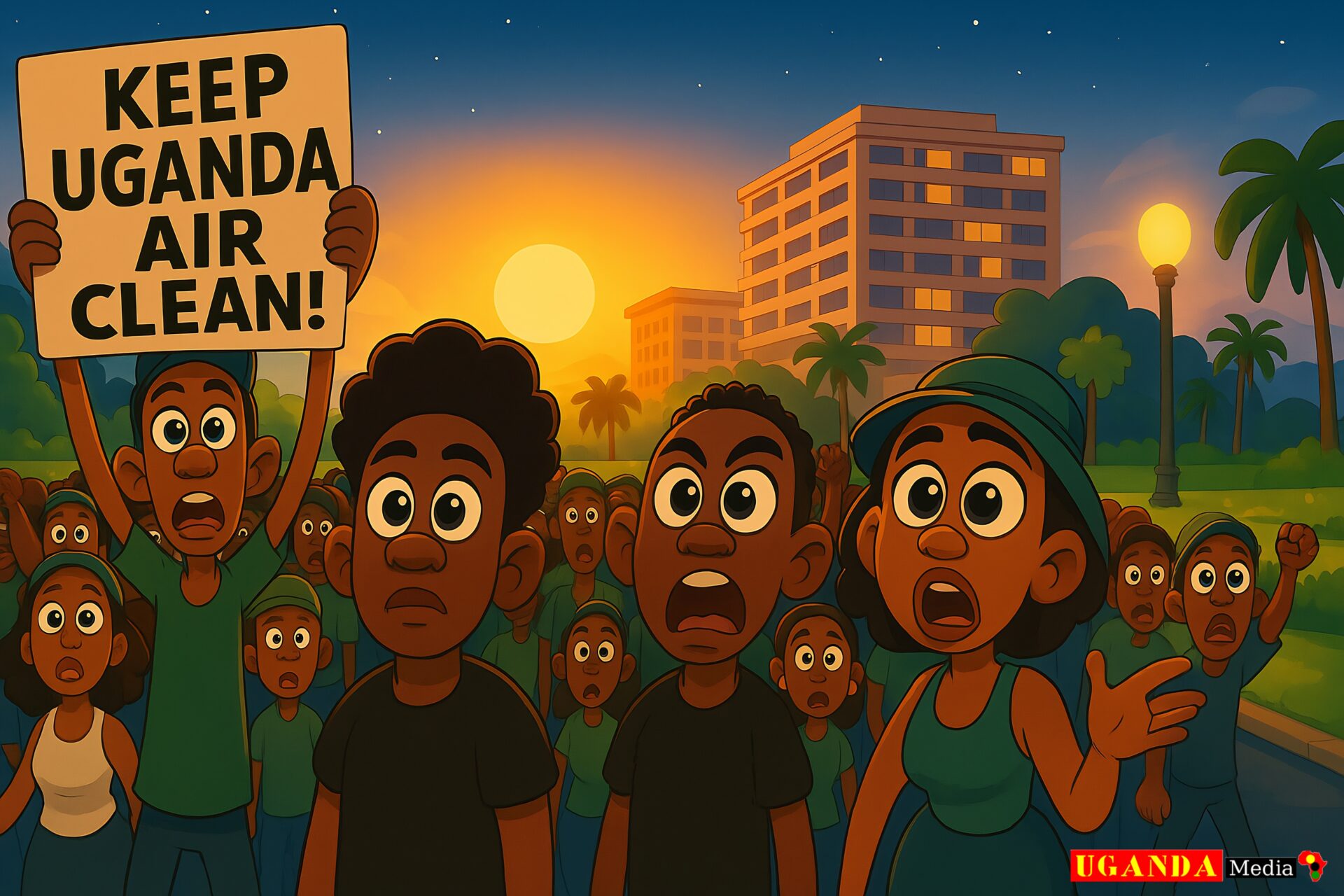
The march culminated at the iconic Clock Tower, a monument standing stoic amidst the chaos—a silent witness to decades of rebellion, hope, despair, and dreams. Here, under its shadow, the demonstrators gathered, voices rising in unison, creating a symphony of fury, fear, and fleeting optimism. Among them stood Lukyamuzi, his voice cutting through the din like a machete slicing through thick bushland. His words carried the weight of tragedy but danced lightly with whimsy.
“The Speaker denied me my chance,” he bellowed, pointing accusing fingers towards the heavens—or perhaps just Parliament Hill. “But today, we speak louder than any chamber ever could! DDT is poison, ladies and gentlemen. Poison for our bodies, our children, our land!” He paused dramatically, letting his words sink in before adding, almost conspiratorially, “And let us not forget—it smells worse than yesterday’s posho.”
Laughter rippled through the crowd, breaking the grim mood momentarily. Yet beneath the humour lay something darker, grittier, more haunting. These young people, clad in faded jeans and university-branded t-shirts, understood the stakes. They weren’t merely protesting a chemical; they were fighting for survival—for themselves, for Uganda, for future generations who might never know what it meant to breathe clean air or drink untainted water.
Makerere University Environment Management Association (MUEMA) had taken centre stage, their condemnation of DDT echoing across Kampala like a battle cry. “This so-called ‘solution’ is nothing more than a legal weapon of mass destruction,” declared Sarah Nalubega, her voice trembling with intensity. “Cancer? Brain damage? Is this the legacy we want to leave behind?”
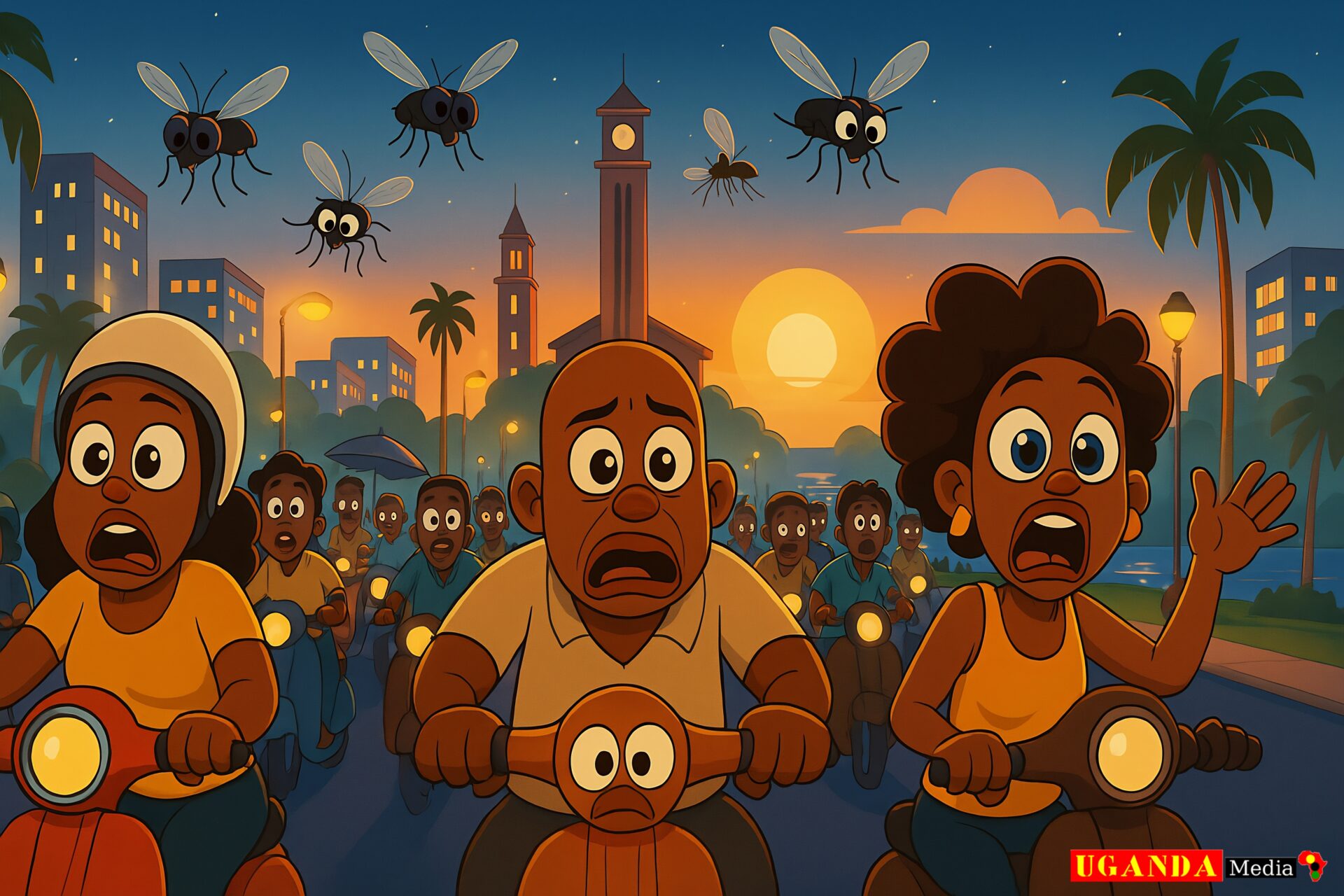
Her words hung heavy in the humid afternoon air, mingling with the scent of street food stalls nearby. Somewhere, a vendor flipped chapati over a sizzling grill while humming an old Luganda tune—a nostalgic melody that seemed out of place yet oddly fitting. Life went on even as the world teetered on the brink of collapse.
As speeches continued, the scene grew increasingly fantastical. One student held aloft a stuffed mosquito wearing tiny sunglasses, eliciting chuckles from the audience. Another performed an impromptu skit parodying Brigadier Muhwezi, complete with exaggerated salutes and mock-serious expressions. Even amid the seriousness of the cause, there was room for levity—a reminder that rebellion needn’t always be grim-faced.
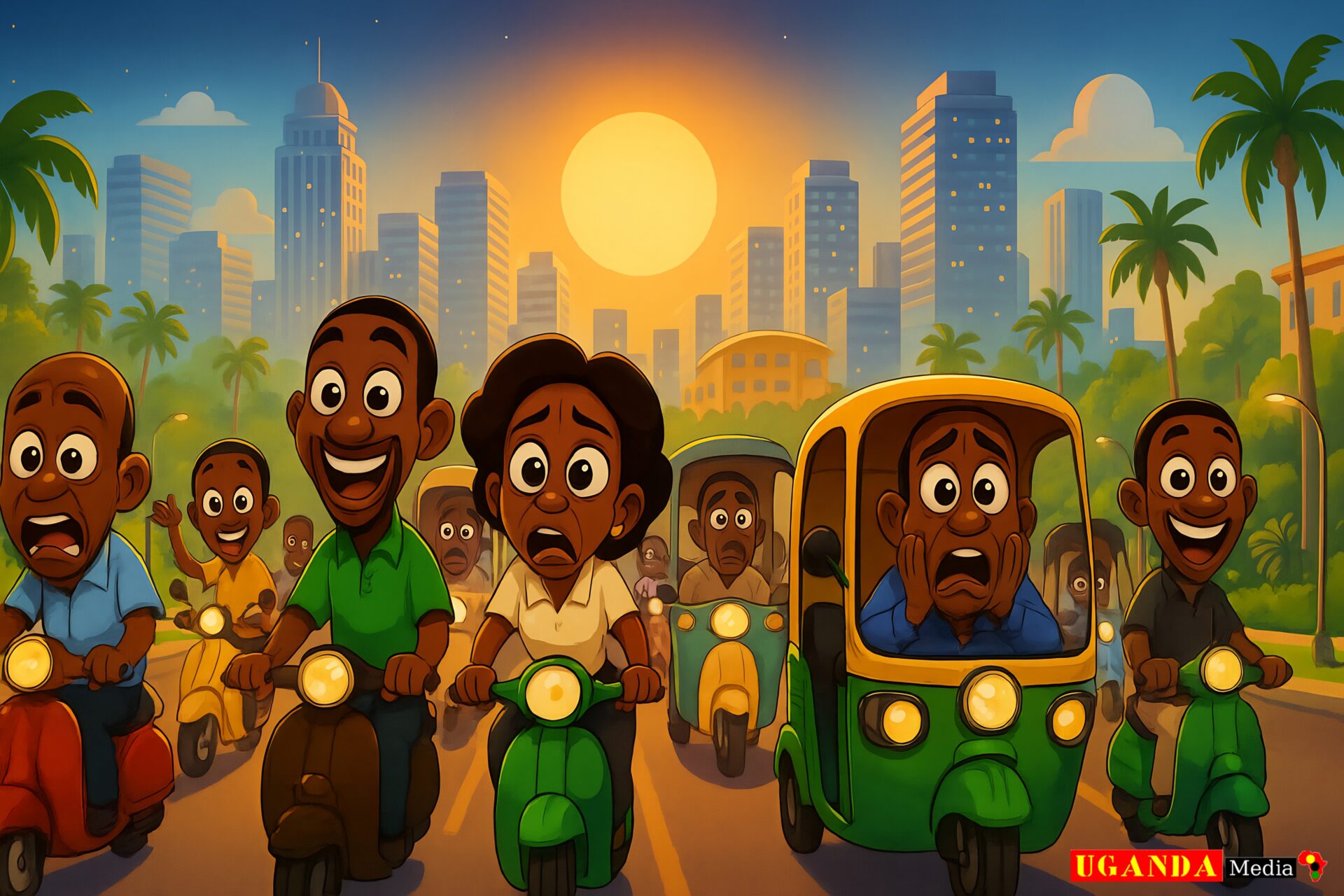
Yet, lurking beneath the surface was an eerie awareness of danger. This wasn’t just another protest; it was a direct challenge to a regime notorious for silencing critics. Whispers circulated about plainclothes officers blending into the crowd, jotting down names, taking photos. Every cheer felt tinged with risk, every chant laced with defiance. But still, they persisted.
By evening, the rally dispersed, leaving behind scattered banners and empty soda bottles. The Clock Tower stood tall once more, its hands ticking steadily forward. For those who had gathered there, the day would linger long in memory—a tale of courage and camaraderie, of laughter and tears, of struggles won and battles yet to come.
And somewhere, in the fading light, a lone bodaboda rider revved his engine, ready to carry the fight further, faster, farther. After all, revolutions aren’t fought in boardrooms—they’re born on dusty roads, fuelled by youthful passion and powered by dreams of a better tomorrow.
- The NUP Corruption Allegations: A Sign of a Deeper Political Failure? - 8 September 2025
- Ugandan Politics Exposed: The Illusion of Choice and Managed Opposition - 6 September 2025
- Bobi Wine & NUP Corruption: The Inside Story of Uganda’s Opposition Crisis - 5 September 2025

